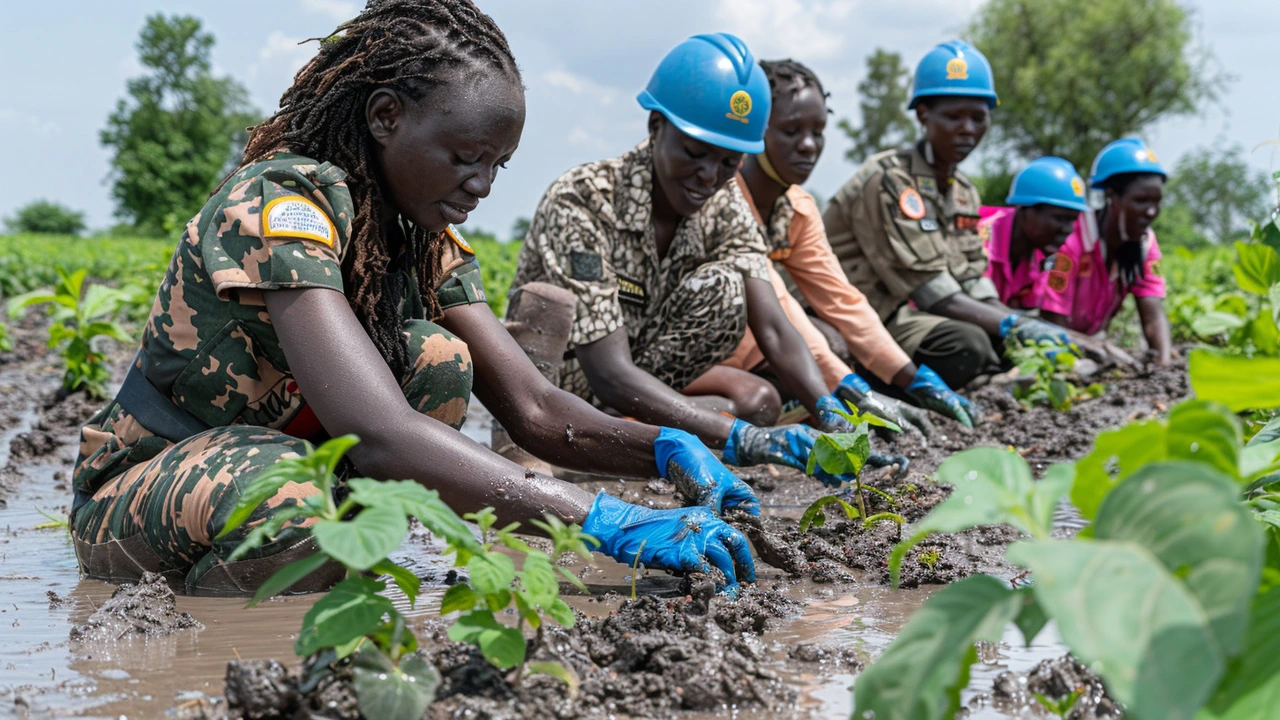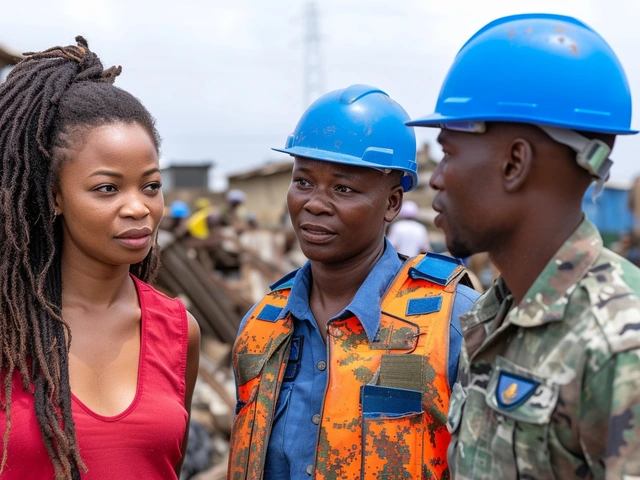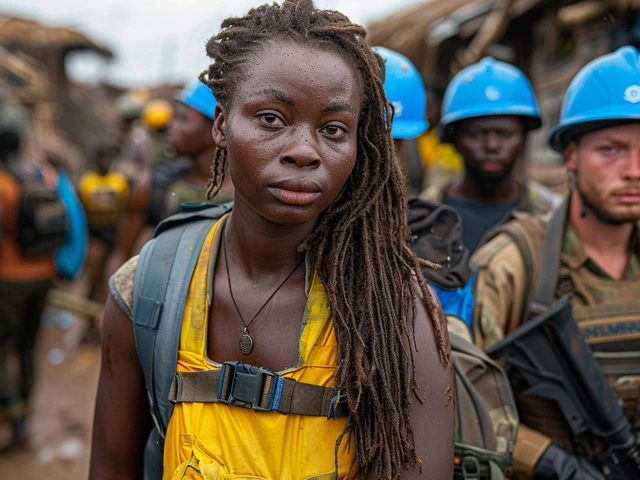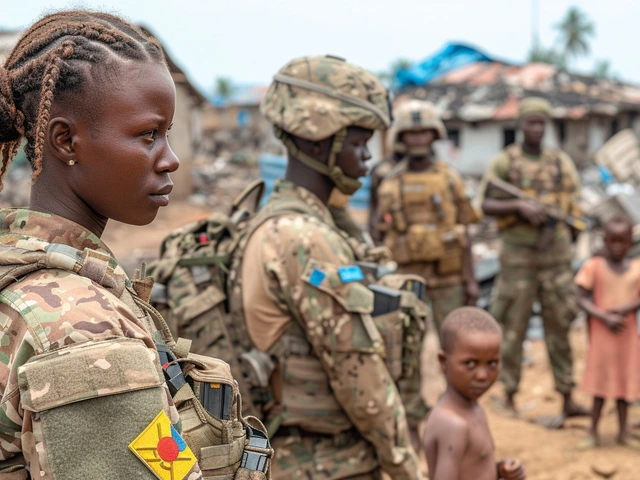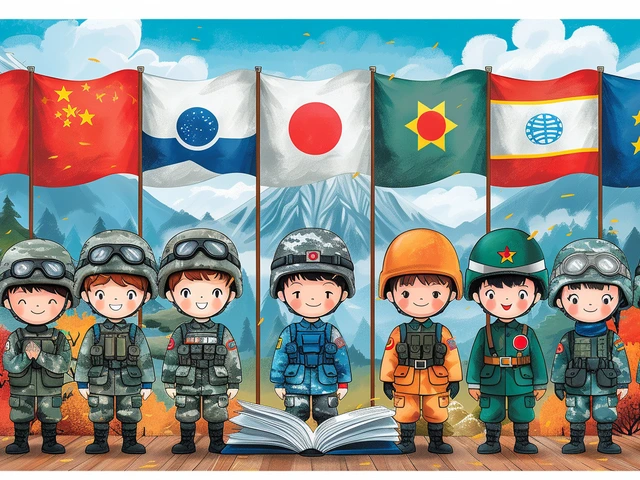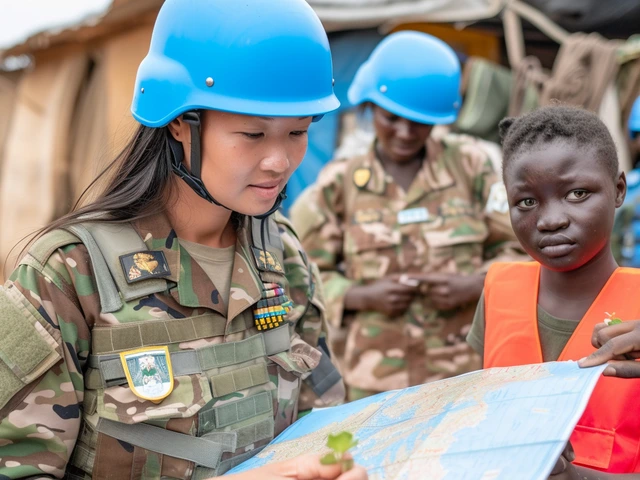Understanding the Genesis of Peacekeeping
In the labyrinth of international relations, peacekeeping has emerged as a beacon of hope in the quest for global peace. Historically, the concept of peacekeeping was introduced by the United Nations in the mid-20th century as a tool to help countries torn by conflict create conditions for sustainable peace. Peacekeeping missions have been dispatched to numerous conflict zones around the world, each with the lofty goal of preventing the recurrence of violence by creating a stable environment in which political, economic, and social reforms can take root.
One of the earliest examples of a U.N. peacekeeping mission was the U.N. Truce Supervision Organization (UNTSO), established in 1948 to monitor the armistice agreement between Israel and its Arab neighbors. Since then, peacekeeping has evolved, both in scope and in methodology, adapting to the changing dynamics of global conflicts. The principles of consent of the parties, impartiality, and non-use of force except in self-defense and defense of the mandate have remained the cornerstones of peacekeeping.
Challenges Faced by Peacekeeping Missions
Despite the noble intentions behind peacekeeping missions, they often face a myriad of challenges that complicate their operations. These range from logistical and financial constraints to political obstacles and the complexities inherent in the local socio-political landscapes where they are deployed. Peacekeeping forces find themselves navigating a delicate balance between neutrality and engagement, often under intense scrutiny from the international community and local populations alike.
The situation in the Democratic Republic of Congo serves as a poignant example of the complex challenges peacekeeping missions encounter. The United Nations Organization Stabilization Mission in the Democratic Republic of the Congo (MONUSCO) has been one of the largest and most expensive of its kind, grappling with a vast country plagued by armed groups, porous borders, and a fertile ground for conflict fueled by resource competition. The effectiveness of MONUSCO and other missions like it is frequently debated, underscoring the need for ongoing innovation in peacekeeping strategies.
Effective Strategies for Peacekeeping
The success of peacekeeping missions hinges on the adoption of strategies that are as dynamic and multifaceted as the conflicts they aim to resolve. Over the years, lessons learned from various missions have highlighted the importance of a comprehensive approach that includes not only military and police components but also political, humanitarian, and development efforts. Fostering local ownership and building the capacity of national institutions are also critical for sustainable peace.
No single strategy fits all, which is why peacekeeping missions must be designed with a deep understanding of the conflict context, the needs of the affected communities, and the geopolitical implications of intervention. For instance, the deployment of peacekeepers with mandates to protect civilians has shown promise in places like South Sudan, where the United Nations Mission in South Sudan (UNMISS) has taken proactive steps to shield civilians from violence. However, the effectiveness of protection mandates heavily relies on the political will, resources, and capabilities of the peacekeeping forces.
The Impact of Peacekeeping on Global Stability
The ripple effects of peacekeeping are felt far beyond the immediate conflict zones. By preventing conflicts from escalating or spreading, peacekeeping missions contribute to regional and global stability. Moreover, they play a pivotal role in supporting post-conflict reconstruction and reconciliation processes, thereby laying the groundwork for lasting peace and development. The success stories, though sometimes overshadowed by the failures, offer valuable insights into the potential of peacekeeping to change the trajectory of troubled nations.
Analyses of peacekeeping effectiveness, such as those conducted by the Department of Peacekeeping Operations, suggest that, despite its challenges, peacekeeping remains one of the most effective tools at the international community's disposal for managing and resolving conflicts. The cases of Liberia and Sierra Leone, where peacekeeping missions successfully facilitated transitions to peace, underscore the potential positive impact of these operations.
Looking Forward: The Future of Peacekeeping
As the world continues to grapple with evolving conflict dynamics, so must peacekeeping evolve to meet these new challenges. The future of peacekeeping will likely involve a greater emphasis on preventive diplomacy, the leveraging of technology for peacekeeping purposes, and enhanced partnerships with regional organizations. Innovations in peacekeeping, driven by a commitment to continuous learning and adaptation, will be crucial for addressing the complex conflicts of tomorrow.
Indeed, as we move forward, the lessons learned from past and current peacekeeping missions will be invaluable in devising more effective approaches to conflict resolution. The path to peace is fraught with obstacles, but through perseverance, innovation, and international cooperation, peacekeeping can continue to play a vital role in building a more peaceful world.

